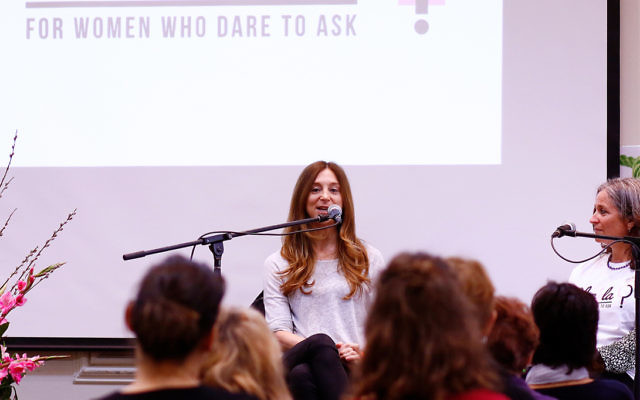She’ela a success, no question
More than 150 Jewish women attended the inaugural She’ela Festival on Sunday (September 4), which featured a variety of talks, workshops and performances by and for Jewish women in the local community.

MORE than 150 Jewish women attended the inaugural She’ela Festival on Sunday (September 4), which featured a variety of talks, workshops and performances by and for Jewish women in the local community.
The keynote speaker on the day was infectious diseases physician Professor Sharon Lewin, who directs the Doherty Institute for Infection and Immunity at the University of Melbourne and is known internationally as an expert on HIV.
She dedicated her talk to Kerryn Baker, a member of the community who died tragically from cancer earlier this year.
When Lewin began studying medicine in 1981, she noted that HIV wasn’t even discovered, yet today, it is completely treatable.
“The most amazing thing to me about HIV is how much we have progressed in a relatively short time,” she said.
“If you think back to the very beginnings of HIV, it was really a time of great fear, quite a lot of hysteria, and stigma, and obviously great sadness and loss of life.”
She said investment in science, largely from the United States, is a key reason why things have progressed so quickly, as well as community engagement and advocacy.
“We’re still not winning, and there’s lots more to do,” Lewin noted. “There are still 20 million people living with HIV who can’t access treatment.”
While there is treatment available, it is required for the duration of the patient’s life. “We still don’t have a vaccine for HIV, and we don’t have a cure,” she said. “And we really need both to see the end of HIV.”
She also cautioned that while “infectious diseases like HIV, Ebola and Zika seem really far away from all of our lives in Australia … the control of them is very much a global responsibility in that no-one really is immune,” adding, “I think a country like Australia can and should play a big role in tackling these health threats.”
Held at Caulfield Hebrew Congregation, other sessions on the day included yoga, music workshops, comedy performances, talks, and a panel discussion on gender identity and sexual diversity. More than 40 women were involved in presenting sessions.
Organiser Naomi Rubinstein highlighted the wonderful atmosphere and the top-quality presenters, and enthused that the team has been overwhelmed with positive feedback since the weekend.
Committee member Yael Prawer lauded the event as “a great chance to bring together women of all ages and backgrounds to share in their experiences, enlighten others and showcase the tremendous courage and talent within our community”.
PHOEBE ROTH

comments